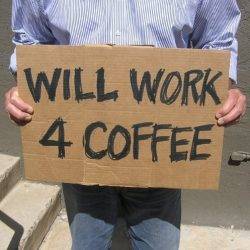June 6, 2017
Office temperature is most likely source of conflict at work 0
Nearly half of office workers (47 percent) cited differences over the office temperature as the aspect of their working environment that causes the most frustration in the workplace, according to a survey of 1,371 working UK adults by Emo Oil. 57 percent consider their office too hot, whilst 43 percent believe the opposite that the office temperature is in fact far too cold for working conditions, which just goes to show what a contentious issue it is. 63 percent state that the temperature affects their productivity in the working day. And as many as 1 in 6 (17 percent), even admitted to having asked their manager to work from home, due to being unhappy with the temperature in their working environment.









 One in seven SME employees admit to feigning illness and taking at least three bogus sick days off each year in order to cope with a culture which expects them to be available all the time. Nearly half (42 percent) of staff who are pulling sickies do so because they need a rest as just under half (46 percent) of SME employees bother to use up their full holiday allowance. At the end of 2016, SMEs employed 15.7 million people and accounted for 99 percent of all private sector businesses. Due to the piling pressure on small business owners, half (51 percent) of the 1,500 British SME workers and business owners who were polled by breatheHR confessed to contacting an employee while they were on sick leave – this number jumps to 72 percent for younger business owners (18-34-year-olds) showing clear generational differences. Additionally, three-quarters (71 percent) of business owners would expect employees to work if they had a common cold. Why? Because absenteeism impacts the bottom line – 85 percent of business owners say it has an economic effect.
One in seven SME employees admit to feigning illness and taking at least three bogus sick days off each year in order to cope with a culture which expects them to be available all the time. Nearly half (42 percent) of staff who are pulling sickies do so because they need a rest as just under half (46 percent) of SME employees bother to use up their full holiday allowance. At the end of 2016, SMEs employed 15.7 million people and accounted for 99 percent of all private sector businesses. Due to the piling pressure on small business owners, half (51 percent) of the 1,500 British SME workers and business owners who were polled by breatheHR confessed to contacting an employee while they were on sick leave – this number jumps to 72 percent for younger business owners (18-34-year-olds) showing clear generational differences. Additionally, three-quarters (71 percent) of business owners would expect employees to work if they had a common cold. Why? Because absenteeism impacts the bottom line – 85 percent of business owners say it has an economic effect.


 Issues with the quality of their workplace lighting frustrate the majority (83 percent) of UK office workers; while 80 percent experience negative symptoms due to poor lighting a new study suggests. The survey by Lutron Electronics focused on key areas including the impact of lighting on mood and wellbeing and whether workers had personal control of their lights or were subject to standard lighting control settings across the office. Understandably, 88 percent of UK respondents said that their office lighting is important or very important and one third (32 percent) stated that their existing workplace lighting aids them in the accuracy and visibility of their work. In addition, 27 percent believe it allows them to focus more while 25 percent said it increases their general wellbeing. However, 35 percent of overall respondents said their existing office lighting does not have any positive impact on them at work. This figure is even higher (44 percent) among those in large companies with more than 5,000 employees and amongst the most senior generation (55+), where it reached more than half (51 percent).
Issues with the quality of their workplace lighting frustrate the majority (83 percent) of UK office workers; while 80 percent experience negative symptoms due to poor lighting a new study suggests. The survey by Lutron Electronics focused on key areas including the impact of lighting on mood and wellbeing and whether workers had personal control of their lights or were subject to standard lighting control settings across the office. Understandably, 88 percent of UK respondents said that their office lighting is important or very important and one third (32 percent) stated that their existing workplace lighting aids them in the accuracy and visibility of their work. In addition, 27 percent believe it allows them to focus more while 25 percent said it increases their general wellbeing. However, 35 percent of overall respondents said their existing office lighting does not have any positive impact on them at work. This figure is even higher (44 percent) among those in large companies with more than 5,000 employees and amongst the most senior generation (55+), where it reached more than half (51 percent).
 Nearly half of UK employees are effectively working an extra day per week for free, claims new research from Powwownow. On average, UK workers spend just under seven hours per week working outside of contracted hours – the equivalent of a nine-to-five working day with an hour for lunch – but nearly half of them (42 percent) receive no pay for this extra days’ worth of work. A quarter of UK workers (26 percent) receive their standard pay for any overtime, while a fifth (21 percent) are rewarded with ‘time and a half’. Only 6 per cent receive ‘double time’. Germans get a worst deal though, as employees spend an average of 7 hours and 54 minutes working extra but a huge 61 percent of workers receive no pay at all for this time. Workers in Sweden spend the least time working outside of contracted hours, with only 4 hours and 9 minutes of extra work per week.
Nearly half of UK employees are effectively working an extra day per week for free, claims new research from Powwownow. On average, UK workers spend just under seven hours per week working outside of contracted hours – the equivalent of a nine-to-five working day with an hour for lunch – but nearly half of them (42 percent) receive no pay for this extra days’ worth of work. A quarter of UK workers (26 percent) receive their standard pay for any overtime, while a fifth (21 percent) are rewarded with ‘time and a half’. Only 6 per cent receive ‘double time’. Germans get a worst deal though, as employees spend an average of 7 hours and 54 minutes working extra but a huge 61 percent of workers receive no pay at all for this time. Workers in Sweden spend the least time working outside of contracted hours, with only 4 hours and 9 minutes of extra work per week.


 HR professionals will, on average, oversee 15 staff with mental health conditions each year, according to new analysis from consultancy, the
HR professionals will, on average, oversee 15 staff with mental health conditions each year, according to new analysis from consultancy, the 
 One of the biggest concerns cited by many of those being polled on their views during the General Election campaign has been the high cost of living compared to wages. Now a new report claims that over half (55 percent) of employees are experiencing financial problems, which are affecting their behaviour, relationships and ability to perform at work. Although the nationwide study of the financial wellbeing of UK workers The DNA of Financial Wellbeing 2017 report, claims that nearly a third (32 percent) cite finance as their biggest concern; 66 percent of HR directors, think that financial worries are not of concern to their employees. The findings from Neyber, a financial wellbeing company, shows that 47 percent of workers are borrowing money to meet their basic financial needs, with 25 percent borrowing on a credit card, followed by 13 percent through a bank overdraft and 13 percent borrowing from friends and family. Meanwhile, an increase in so-called zero hour contracts means that nearly half (47 percent) of workers in the North and Midlands have an income fluctuation of more than 10 percent each month.
One of the biggest concerns cited by many of those being polled on their views during the General Election campaign has been the high cost of living compared to wages. Now a new report claims that over half (55 percent) of employees are experiencing financial problems, which are affecting their behaviour, relationships and ability to perform at work. Although the nationwide study of the financial wellbeing of UK workers The DNA of Financial Wellbeing 2017 report, claims that nearly a third (32 percent) cite finance as their biggest concern; 66 percent of HR directors, think that financial worries are not of concern to their employees. The findings from Neyber, a financial wellbeing company, shows that 47 percent of workers are borrowing money to meet their basic financial needs, with 25 percent borrowing on a credit card, followed by 13 percent through a bank overdraft and 13 percent borrowing from friends and family. Meanwhile, an increase in so-called zero hour contracts means that nearly half (47 percent) of workers in the North and Midlands have an income fluctuation of more than 10 percent each month.















